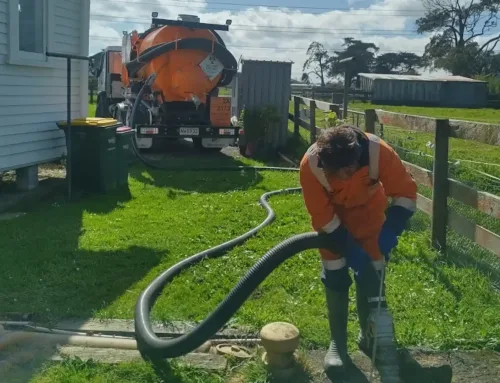Some Known Incorrect Statements About Reclaim Waste
Some Known Incorrect Statements About Reclaim Waste
Blog Article
Rumored Buzz on Reclaim Waste
Table of ContentsThe Only Guide for Reclaim WasteFacts About Reclaim Waste UncoveredThe Ultimate Guide To Reclaim WasteAn Unbiased View of Reclaim WasteSome Known Factual Statements About Reclaim Waste
Explore the kinds, incidents, and types of liquid waste. Residential sewage waste describes the waste and products from a residential septic system. This kind of waste is produced by people in residences, institutions, and various other buildings. This only consists of septic systems that have a drainpipe area. The proper management and disposal of residential sewer waste require fluid waste to be transferred to a sewer therapy plant where the correct techniques and tools are applied to cleanse and get rid of waste.
Business waste often consists of possible risks, such as combustible materials or a mixture of liquid and strong waste items, and needs an extra advanced and in-depth disposal procedure. The disposal of industrial waste normally includes the purification of waste before transportation to make sure secure and proper disposal. Hazardous waste is developed from byproducts and overflow of commercial procedures and manufacturing.
This type of waste can not make use of the same sewage administration transport or procedures as septic or business fluids. The hazardous waste monitoring procedure calls for the evaluation and testing of liquid waste before it undergoes the disposal process (liquid waste disposal melbourne). Overflow waste is the liquid waste that comes from overflow and excess stormwater in extremely inhabited locations or cities
Overflow waste can trigger contamination and flooding if not managed appropriately. Making certain proper waste management can protect against catastrophes and minimize environmental injury.
Reclaim Waste Can Be Fun For Anyone
Get in touch with PROS Providers today to discover concerning our waste administration and disposal services and the correct ways to take care of the liquid waste you create.
(https://padlet.com/leonaube33101/reclaim-waste-hw71hge954tsaxnp)Do you recognize what occurs to your water when you disengage, purge the toilet or drain pipes the washing machine? No? Well, it deserves knowing. This supposed 'wastewater' is not only a vital resource yet, after treatment, will certainly be released to our land, rivers or the sea. Utilized water from toilets, showers, bathrooms, kitchen area sinks, washings and industrial procedures is called wastewater.

water used to cool down equipment or clean plant and equipment). Stormwater, a type of wastewater, is runoff that flows from farming and city locations such Discover More Here as roofings, parks, yards, roadways, paths and gutters right into stormwater drains pipes, after rain. Stormwater streams unattended directly to local creeks or rivers, ultimately getting to the sea.
Rumored Buzz on Reclaim Waste
In Queensland, a lot of wastewater is treated at sewer therapy plants. Wastewater is transferred from domestic or industrial sites with a system of sewage systems and pump terminals, referred to as sewage reticulation, to a sewage treatment plant. Local governments develop, preserve and operate most sewage therapy plants. Operators are licensed under the Environmental Management Act 1994 to release treated wastewater at an appropriate environmental requirement right into rivers.
The Division of Natural Resources recommends local governments about managing, operating and preserving sewerage systems and therapy plants. In unsewered locations, city governments might call for owners to mount private or family sewage therapy systems to deal with residential wastewater from bathrooms, kitchen areas, shower rooms and laundries. The Department of Natural Resources authorizes the use of home systems when they are verified to be effective.
In some brand-new class, treatment of some stormwater to get rid of trash, sand and crushed rock has started using gross toxin traps. Wastewater treatment occurs in 4 stages: Eliminates strong matter.
Utilizes little living microorganisms knows as micro-organisms to damage down and get rid of staying liquified wastes and fine particles. Micro-organisms and wastes are integrated in the sludge.
Some Known Details About Reclaim Waste
Nutrient removal is not available at all sewage therapy plants due to the fact that it needs expensive specialised tools. Clear fluid effluent produced after therapy might still include disease-causing micro-organisms - liquid waste removal melbourne.

This usually implies wastewater has actually to be dealt with or contaminants removed prior to it can be released to rivers. Most wastewater moves right into the sewerage system. Under the Act, city governments carry out approvals and permits for ecologically relevant tasks (Ages) involving wastewater launches that may have a regional impact. The division provides approvals and licences to Ages involving wastewater launches that may have a regional or statewide effect.
The Basic Principles Of Reclaim Waste
Or else, samples are taken for lab evaluation. Typically lots of examinations are required to establish the levels of each of the various contaminants such as oils, heavy steels and chemicals in water. Monitoring provides factual info concerning water quality and can confirm that licence conditions are being fulfilled. The details obtained through monitoring offers the basis for making water high quality choices.
Report this page